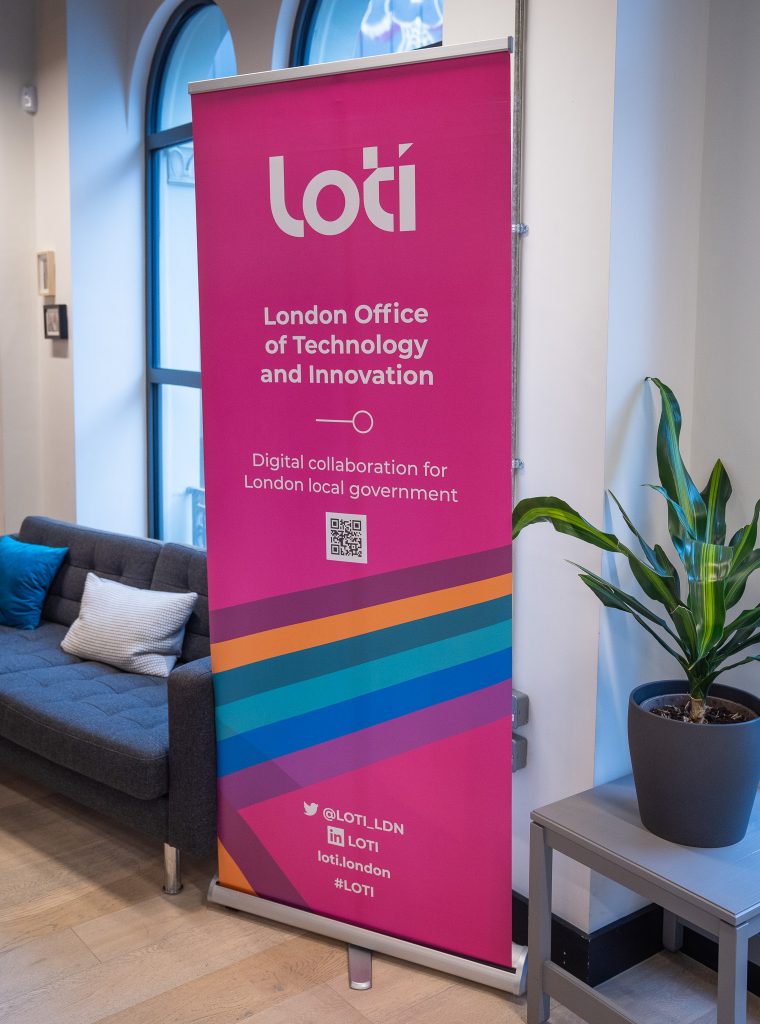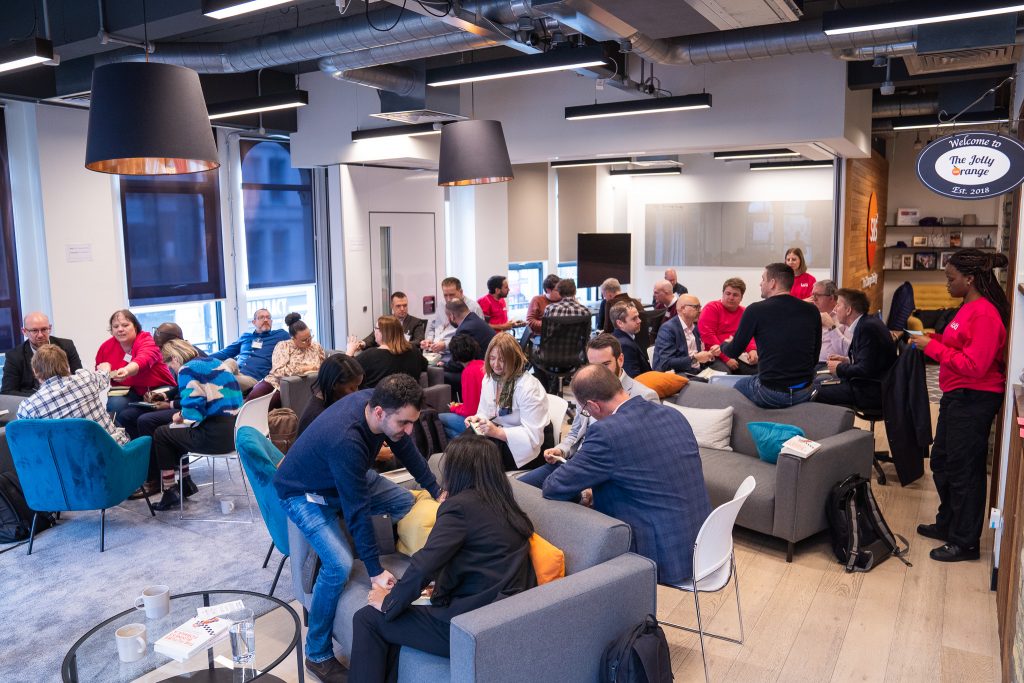In a landscape marked by rapid technological advancements and evolving societal needs, local government leaders are confronted with a myriad of challenges that demand immediate attention and innovative solutions. From navigating ever increasing financial pressures to the pressing need for digital services, the stakes have never been higher.
We recently had the pleasure of hosting the London Office of Technology & Innovation’s (LOTI) All Members Away Day where we provided a dynamic platform for addressing these challenges. The session offered a unique opportunity for Digital and Innovation leaders from London Boroughs to come together under one roof and engage in meaningful discussions, share insights and explore practical strategies for overcoming the hurdles that stand in the way of transformative public service delivery.
This blog summarises the key takeaways of the day:
The Financial Conundrum: Navigating Pressures with Innovation
One of the paramount discussions revolved around the financial pressures facing London boroughs. The urgent need for cashable savings, juxtaposed with the necessity for continuous investment in digital, data and innovation, highlighted a critical balance that needs to be struck. The compelling narrative isn’t about digital transformation being an additional cost, but a strategic enabler for more sustainable services and councils. The challenge lies in articulating this value proposition, ensuring that digital transformation is seen as an investment in the future and one that delivers incremental value, rather than an expense.
Bridging the Skills Gap: The Human Element of Digital Transformation
Attracting and retaining talent was another focal point. The need for skilled personnel who can seamlessly bridge the gap between technology and its real-world applications is more pronounced than ever. Local government organisations grapple with the dual challenge of attracting talent in a competitive market and retaining individuals with essential digital skills. This scenario calls for innovative approaches to recruitment, development and retention strategies, ensuring that the public sector is equipped with the right talent to drive digital agendas forward.

The Collaboration Imperative: Overcoming Silos for Collective Impact
Collaboration emerged as a pivotal theme. The diversity of local political priorities presents a unique challenge, with neighbouring Chief Digital and Information Officers (CDIOs) often running conflicting agendas that aren’t necessarily immediate priorities for their respective constituents. But overcoming a ‘not invented here’ culture is essential for pan-London, and indeed, specific council success. There’s a desire to foster a culture of shared goals and mutual benefits. Crafting a compelling narrative that underscores the advantages of collaboration and provides the resources to make it happen is vital for transcending traditional boundaries and achieving collective impact.
Evaluating for Excellence: The Quest for Impactful Transformation
The session shed light on the critical need for robust evaluations. The quest to demonstrate tangible return on investment (ROI) and to share genuine best practices—beyond the glossy exteriors of press releases—requires a dedicated focus on capturing real-world impacts, successes and lessons learned. This is not just about validating current initiatives but about laying the groundwork for informed decision-making and strategic investments in future technologies and service designs.
Service Design and Adult Social Care: Designing for the Future
Service design and mapping, particularly in the realm of Adult Social Care, stood out as areas where enhanced capability and innovative thinking are desperately needed. The complexities of these services, and limited influence of Digital and Innovation teams on Adult Social Care and NHS priorities, coupled with immense financial pressures, call for a radical rethink of how services are designed, delivered and evaluated. The integration of user research and data-driven decision-making processes can significantly enhance the efficacy and efficiency of these services.
Embracing GenAI: Navigating the New Frontier
The potential of Generative AI (GenAI) was a topic of keen interest, with discussions centred around low-risk, high-impact use cases. The journey towards leveraging AI effectively is fraught with challenges, including managing expectations, ensuring data quality, and fostering a culture that embraces data-driven decision-making. The forward-looking perspective on preparing the workforce for the AI-driven future highlighted the need for strategic planning in skills development and data management.

The Big Tech Equation: Striking the Right Balance
Local government leaders are wary of relationships with big tech suppliers, feeling these partnerships often don’t align with their unique needs, and technology changes not always yielding the promised benefits. The hidden costs of migrating systems further complicate the picture, raising questions about the real value of these large-scale investments. This scenario underscores the need for a strategic approach in dealing with big tech firms, ensuring that solutions are not only cost-effective but also tailored to the specific demands of public service delivery.
Lessons from Formula 1™️
A particular highlight that resonated with LOTI members was the chance to hear from Sullivan & Stanley’s Chief Change Officer, Adrian Stalham, co-author ‘The Future Business Formula.’ His book shares insights and expertise on how to drive value and ensure future success even when the future looks uncertain. By using principles from the fast-paced world of Formula 1™️racing, he provided a unique angle on transforming businesses by putting customers first and building high-performing teams and cultures. The session was a great reminder of how important it is to stay adaptive and focus on what really matters. Detailing practical strategies are something that organisations can use to navigate the complexities of the modern business world, and it helped LOTI members to frame their thinking on sustainable local government transformation.
At Sullivan & Stanley, we are committed to helping drive this transformative journey, providing the guidance, expertise and innovative thinking necessary to navigate these complex landscapes. We partner with organisations to offer practical solutions and a collaborative approach to ensure they are at the forefront of sustainable and impactful change. We look forward to hosting LOTI and its members again in the future.
For more information, we’d love to hear from you at hello@sullivanstanley.com







































































